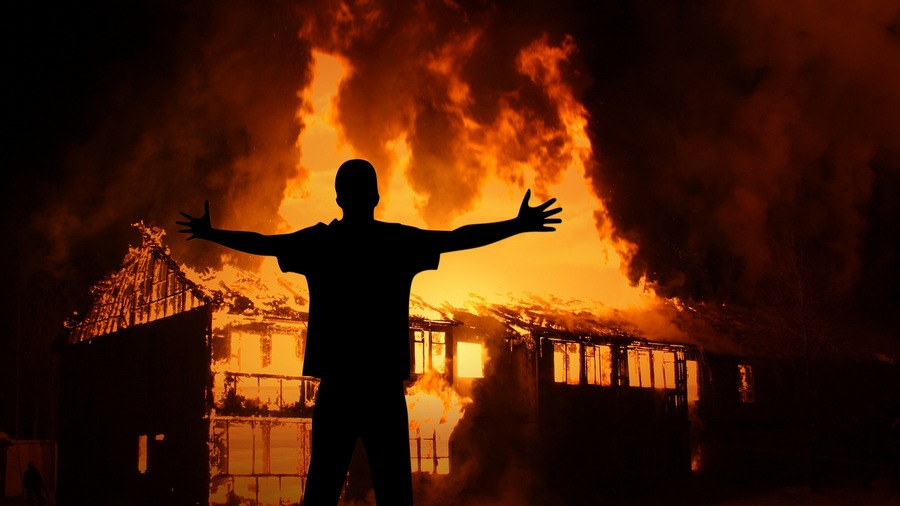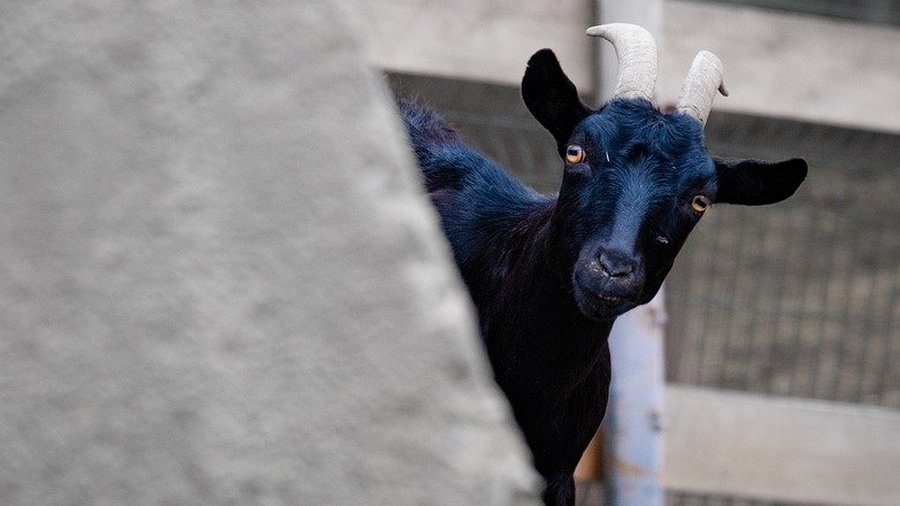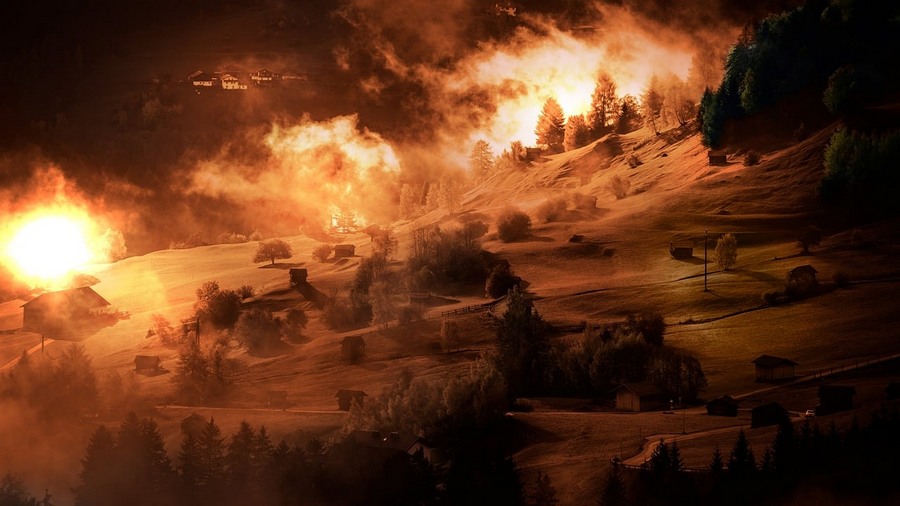“Bhikkhus, the uninstructed worldling speaks of these three perils that separate mother and son. What three?
(1) “There comes a time when a great conflagration arises. When the great conflagration has arisen, it burns up villages, towns, and cities. When villages, towns, and cities are burning up, the mother does not find her son and the son does not find his mother. This is the first peril that separates mother and son of which the uninstructed worldling speaks.
(2) “Again, there comes a time when a great rain cloud arises. When the great rain cloud has arisen, a great deluge takes place. When the great deluge takes place, villages, towns, and cities are swept away. When villages, towns, and cities are being swept away, the mother does not find her son and the son does not find his mother. This is the second peril that separates mother and son of which the uninstructed worldling speaks.
(3) “Again, there comes a time of perilous turbulence in the wilderness, when the people of the countryside, mounted on their vehicles, flee on all sides. When there is perilous turbulence in the wilderness, and the people of the countryside, mounted on their vehicles, are fleeing on all sides, the mother does not find her son and the son does not find his mother. This is the third peril that separates mother and son of which the uninstructed worldling speaks.
“These are the three perils that separate mother and son of which the uninstructed worldling speaks.
“There are, bhikkhus, these three perils when mother and son reconnect that the uninstructed worldling speaks of as perils that separate mother and son. What three?
(1) “There comes a time when a great conflagration arises. When the great conflagration has arisen, it burns up villages, towns, and cities. When villages, towns, and cities are burning up, there is sometimes an occasion when the mother finds her son and the son finds his mother. This is the first peril when mother and son reconnect that the uninstructed worldling speaks of as a peril that separates mother and son.
(2) “Again, there comes a time when a great rain cloud arises. When the great rain cloud has arisen, a great deluge takes place. When the great deluge takes place, villages, towns, and cities are swept away. When villages, towns, and cities are being swept away, there is sometimes an occasion when the mother finds her son and the son finds his mother. This is the second peril when mother and son reconnect that the uninstructed worldling speaks of as a peril that separates mother and son.
(3) “Again, there comes a time of perilous turbulence in the wilderness, when the people of the countryside, mounted on their vehicles, flee on all sides. When there is perilous turbulence in the wilderness, and the people of the countryside, mounted on their vehicles, are fleeing on all sides, there is sometimes an occasion when the mother finds her son and the son finds his mother. This is the third peril when mother and son reconnect that the uninstructed worldling speaks of as a peril that separates mother and son.
“These are the three perils when mother and son reconnect that the uninstructed worldling speak of as perils that separate mother and son.
“There are, bhikkhus, these three perils that separate mother and son. What three? The peril of old age, the peril of illness, and the peril of death.
(1) “When the son is growing old, the mother cannot fulfill her wish: ‘Let me grow old, but may my son not grow old!’ And when the mother is growing old, the son cannot fulfill his wish: ‘Let me grow old, but may my mother not grow old!’
(2) “When the son has fallen ill, the mother cannot fulfill her wish: ‘Let me fall ill, but may my son not fall ill!’ And when the mother has fallen ill, the son cannot fulfill his wish: ‘Let me fall ill, but may my mother not fall ill!’
(3) “When the son is dying, the mother cannot fulfill her wish: ‘Let me die, but may my son not die!’ And when the mother is dying, the son cannot fulfill his wish: ‘Let me die, but may my mother not die!’
“These are the three perils that separate mother and son.
“There is a path, bhikkhus, there is a way that leads to the abandoning and overcoming of these three perils when mother and son reconnect and of these three perils that separate mother and son. And what is the path and way? It is just this noble eightfold path; that is, right view, right intention, right speech, right action, right livelihood, right effort, right mindfulness, and right concentration. This is the path and way that leads to the abandoning and overcoming of these three perils when mother and son reconnect and of these three perils that separate mother and son.”
Read this translation of Aṅguttara Nikāya 3.62 Bhayasutta: Perils by Bhikkhu Bodhi on SuttaCentral.net. Or read a different translation on SuttaCentral.net, or Ancient-Buddhist-Texts.net. Or listen on PaliAudio.com or SC-Voice.net. Or explore the Pali on DigitalPaliReader.online.
Or read a translation in Deutsch, Português, Bengali, Magyar, Indonesian, Italiano, မြန်မာဘာသာ, ру́сский язы́к, සිංහල, ไทย, Tiếng Việt, or 汉语. Learn how to find your language.









